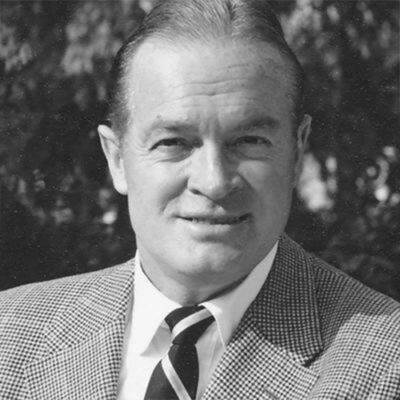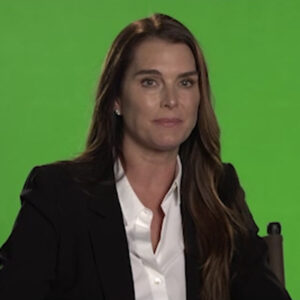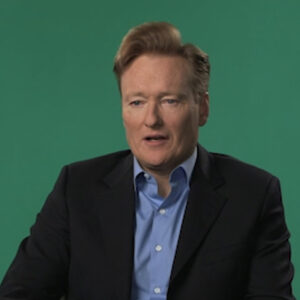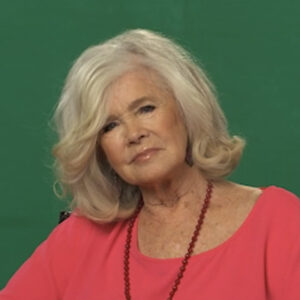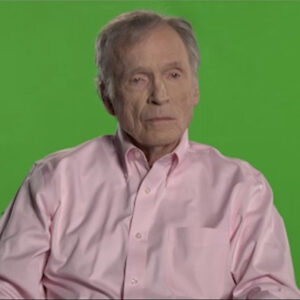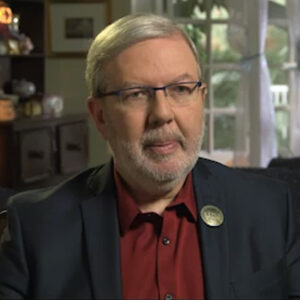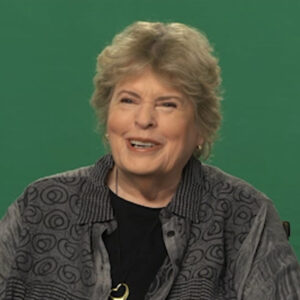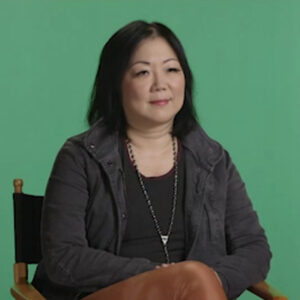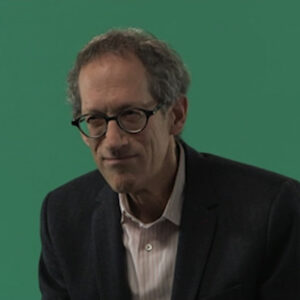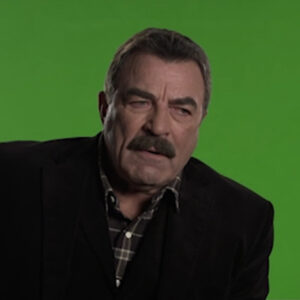Speaker Well, there had been in the 1930s, in the 1940 election, the election that gives Franklin Roosevelt his unprecedented third term, there had been a debate in America, a very, very close debate over whether this country needed to participate, to intervene in the world war that had already started both in Asia and in whether this country should intervene in the world war, which had already started both in Europe and in Asia, or whether the United States should stick to its tradition of staying away in World War One.
Speaker The United States had intervened, but for a lot of people that had been a mistake and folks thought, no, let’s go back to that tradition started with George Washington, where we just we don’t get into entangling alliances. We don’t involve ourselves in in these imperial fights.
Speaker So so when Pearl Harbor happens, it decides the debate. And Americans do not have any doubts that it was a 50 50 proposition. I mean, that’s how close the debate was in this country. But once Pearl Harbor happens, all the doubts. But once Pearl Harbor happens, all doubts disappear. But once Pearl Harbor happens, all doubts dissipate. And so the country is behind the war effort. And the genius of Franklin Roosevelt is that although the Japanese attacked, although the Japanese had attacked the United States, he mobilized Americans to fight the Nazis, too. And so the United States was involved in a two front war. For a country that for a country that until recently wasn’t at war, to find itself in the middle of a two front war was dramatic. And a lot of Americans, most Americans by far had never traveled outside of the United States. And these two wars would involve transporting young men and some women thousands of miles from home farm. Kids from the Midwest are kids from the Rocky Mountain states, Southern boys, if they were going to be leaving the country to fight somewhere in the Pacific or in Europe or North Africa.
Speaker So for America, there was this peculiar migration forced, if you will, but a migration of troops so that this country went from being isolationist for the most part to being engaged in a way it had never been before in world events. And young Americans and women were going abroad to places they couldn’t even find on a map. So America was shaken out of its isolationist moment and suddenly was transformed into a world power. All of that happened within days of Pearl Harbor. So by 1942, the United States finds itself at a new level of international engagement, a level of international engagement that it would continue arguably for the next 70 years.
Speaker So we have all of these young people traveling and offering them a sense of something.
Speaker Well, talk a bit about the importance of someone like that to the guys, but also to the parents and the brothers and the mothers and fathers there.
Speaker There are two important audiences for the hope shows in World War Two. There are the servicemen Hope. Hope is a famous American entertainer. They may well have listened to him at home on their radios in the 1930s. He is a reminder of home.
Speaker He’s a reminder of a normal period. He is a reminder of the parents and of their of their love. You know, a reminder, parents and girlfriends and wives and maybe even children. He reminds people of a world that is so very far away. And perhaps for some of them, he reminds them of a world that they are not sure they’re going to see again.
Speaker And for others, he’s a reminder of a world that they’re actually fighting for, even though he’s making jokes.
Speaker But he is that America they’d like to go home to. So psychologically, morally, he psychologically and as a matter of morale, he lifts their spirits and does them and his troop to. It’s not just Bob Hope. It’s Bob Hope and a troupe of hard working performers. They are saying, we love you, we believe in you, we care for you, and we are grateful to you for your service.
Speaker His other audience, his shows are beamed back to the United States. Parents are listening to the cheers of their sons. Imagine what it must have been like in a really apprec television era, a pre telephone. There were telephones, but you had to be rich to have one. So you’re probably not going to have spoken to your your serviceman. Your son was in the Army or Navy or Marines. So you don’t you don’t hear them. What you get from them are v mail letters, letters that the that the service is sent home. And you may get a picture, but probably not. So even though you’re not seeing your son, you’re hearing the voices of people his age and you’re hearing them laugh when when you think of war, all you think about is death and destruction and sadness and loss. But for a moment, you’re hearing them laugh and and it and it and it’s a reminder that this might just ensue. This might end. So there are two audiences for the hope shows. And we mustn’t forget that there are to the fact that there is a second audience is so clear, because at the end of many of these shows, Bob Hope would talk about war bonds, and that was directed at at the homefront. Many of the servicemen were actually contributing a little of their meager pay to buy bonds to help fund the war effort. Hope was talking to the parents and others who didn’t have children who perhaps were they were certainly serving their country by working, but maybe they could add a little bit from their pay and buy a war bond for those kids that were fighting for your freedom. And you can hear them laugh. Well, help them.
Speaker I wish you’d have something to say. So let’s talk about that one at the end of one of those shows. You know, he talks in a very unusual, polite way, very serious. Very emotional about what? That they talk to us a bit about what D-Day was and how difficult it was for America, for the world when when we when we teach World War Two, because, sadly, there aren’t many people left who experienced it.
Speaker It’s so easy to fall into the sense that that victory was inevitable, that ultimately the Nazis and the Japanese would be defeated. But if we could take it, if we could be time travelers and we could go back to London in the early summer of but if we could be time travelers and we could go back to London in the late spring of 1944 and and sit with General Eisenhower, who commanded allied forces on the Western Front, he would he would have shamed us into understanding that that the invasion of France was going to be close. It wasn’t going to be easy. You were going to have to put five divisions on a beachhead and you couldn’t put them immediately on a beachhead. And this is a world before nuclear weapons. So you’re going to put them on the beach and the Nazis could bring their tanks and blow those young men out of the water and kill those young men who were already on the beaches. This was going to be close and it was going to be tough. And it wasn’t certain that D-Day would be successful. One could argue that over time, because of the enormous resources that the United States could bring to bear with the British commonwealth against the Nazis, that the Nazis would be beaten and certainly with the Soviets moving steadily westward. But D-Day itself, it was going to be a close run thing. So when General Eisenhower talked to the young men that were going to go over seas, when he talked to the young men who were going to cross the channel, he knew full well that many of those faces. Were of men who would not live to to see the beachhead secured, they might not even live to get to the beach, to the beaches. Well, that was the world that Bob Hope was trying to entertain. And and and anybody who had been traveling the way Hope had by 1944 knew about the dangers of war. Pope himself had been strapped. He and his troop had been straight strafed at least three times at different venues, a different place. He and his troop had been strafed about three times, at least three times in North Africa.
Speaker He understood that, that this was an audience that was even more likely not to live to his next show than any audience that he had talked to before, given the dangers and the complexity of D-Day.
Speaker And the significance importance of that?
Speaker Well, if you look at a map of occupied Europe in nineteen forty four, you see the allies have moved up in Italy, but the Nazis are controlling all of northwest Europe, all of France, all of the little countries in order to beat them.
Speaker You had to roll them back from France, but you had to get to France. And that meant taking the over a million troops that had been sent Americans there, over a million Americans who were in Great Britain waiting to cross the channel, but they had to cross the channel. So it’s a narrow body of water, but it’s still a body of water. You had to get them onto the beaches of France to even have a chance of liberating that country. And if you didn’t liberate France, you’d have to fight your way up through the Alps from Italy to get re-elected. You would have to fight your way up the Alps from northern Italy. You’d have to fight your way up through Italy and the Alps to get to Berlin. So you wanted to if you wanted to capture Berlin and destroy Nazi Germany, you had to liberate France. And if you wanted to liberate France, you had no choice but to cross the channel and establish a beachhead and fight your way to Paris and then from Paris into Germany.
Speaker And the fact that they did it well once and for all did it.
Speaker Once the allies secured the Normandy beaches, they were then able to make a push to Paris and they were in Paris by August of 1944, and once they had Paris, there was a sense that the war could be over by the end of 1944. The key to beating Nazi Germany was a pincer movement, with the Soviets coming west and the Alah and the Western allies going east, meeting somewhere in Germany. Once you had what? Once you had taken Normandy and then liberated Paris, it was clear that Hitler was facing these two hammers coming at him from either side. And it was just a matter of time before the Third Reich would collapse.
Speaker That’s great. So it took a while. But what does it mean for America to finally.
Speaker Oh, hmm. You know.
Speaker The people watching today may remember the end of the Cold War when the Berlin Wall fell and then the Soviet Union collapsed, that brought a sense of relief around the world. But but our engagement as a people in the Cold War, while very important and very costly and very long, was not a quarter of the engagement of the that World War too involved for this country. First of all, the country first of all, the United States lost over 300000 men in World War Two. There wasn’t a family in this country that wasn’t somehow affected, whether they lost someone or they knew someone who had died. Americans for the War effort took on tasks they’d never taken before. Women went and worked in factories. It changed this country.
Speaker The level of fear, the level of danger was at a sustained level for four years. Imagine that from Pearl Harbor until V-J Day. From December 1941 to August 1945, this country was fighting a huge, difficult, painful, costly war. And then suddenly it was over.
Speaker The relief that must have spread across this country I don’t think can be understood by people who didn’t go through four years of war. The level of sacrifice, of commitment, of concern suddenly stopped.
Speaker And it was like, I’m sure this huge burden was lifted and I don’t doubt that for many people their adrenaline systems and I don’t doubt that for many people their adrenaline systems just crashed after having lived at a certain pitch for so many years. And now it didn’t you didn’t have to anymore. I think that, you know, we talk about what was once called the greatest generation. And when we talk about the people who fought overseas or did their part here, I mean, don’t forget the home front matter. If you don’t have ammunition, you don’t build tanks, you don’t grow food. Your boys can’t fight overseas.
Speaker That experience created a bond among the Americans who were there, who lived through it, and that bond never really dissipated, it never went away.
Speaker So even when these people were in their 70s and 80s, they they remembered what they had all done together. And I believe it gave this generation a unity that few have had before since V-J Day was the day when that generation could say, oh, my God, we did it, and sigh and relax for the first time.
Speaker And it must have been an immensely powerful and emotional and beautiful day.
Speaker Is it fair to say that Bob Hope was part of that team? There’s no question. And would that have helped cement his status as an icon?
Speaker You don’t need you don’t need to ask people decades later if he was part of the team, just read the letters from servicemen who saw his shows that nobody asked them to write about Bob Hope. I’m sure some of them thought a joke here and there was corny, but it was the fact that he established a connection between the world that they left and they were fighting for and the really tough and horrible and scary world that they were in at the time, whether it was somewhere in the South Pacific or in Europe and North Africa. Bob Hope was part of the team. Bob Hope was America overseas. Bob Hope was peacetime.
Speaker America and wartime America wrapped up into one. And don’t forget that there was there. Don’t forget there was a method to the way in which he put together his shows. I mean, partly it was vaudeville, right? That was his training. But it was also he knew what these young men wanted and he adapted his show to really talk to them.
Speaker So he used their language. He understood the just the terms that that that servicemen would use. He knew in jokes. He he he understood, you know, the struggles between enlisted men and officers. And he played on that. He made fun of commanders. He made fun of authority. And he also talked about sex in a way that was wholesome enough for the people listening back home but raunchy enough or which was wholesome enough for the people back home, but edgy enough so that he was signaling to those boys, I get it and I’ve got them around me and it’s too bad. But I’m loving it. He and there’s no question I mean, you look at the way you look at his troops and he’s bringing he has a bevy of attractive women. Well, it’s not just because he liked attractive women. He understood that he had sex starved men. And this was about the best that were going to get for a little while. And and that’s sort of, you know, that’s and and that’s helping out, too. I mean I mean, let’s let’s not make this we can’t let’s not forget that just because people go to war, they don’t lose all their their their peacetime needs.
Speaker If you treat these people as if they’re just machines with rifles and bullets, you are forgetting that one of the things you don’t want to have happen in war is that you forget what you’re fighting for and you forget who you are. War shouldn’t change the identity of peace loving and freedom loving countries. And so, Bob Hope. And when you look at it and after a while you think, oh, my goodness, how could he be saying that? I mean, these poor these men he’s talking to, some of them are going to die. But on the other hand, you think, well, wait a second, he’s he is trying to ease the burden of this huge sacrifice that some of them might make. He’s trying to ease the burden of this huge sacrifice that some of them may make. But but he’s also trying to remind them of a world that’s not lost forever. It’s not don’t think don’t despair, yes, it’s terrible, North Africa, it’s awful. You are so far away from home, he would laugh about North Africa, you’d say it’s Texas with Arabs. And he just do that to say, look, it’s I know it’s so different. I know you have almost no cultural connection to where you are, but you what you’re doing matters so much. And remember, you’re doing it so you can go home. He he would he would laugh in the Cold War, he would make a joke that that when he would travel around the world, he would see he would see Yankee go home signs. And they were written by servicemen. Now, let me do that better. And during the cold, during the Cold War, he during the Cold War, he would. He would during the Cold War. He just that then the cold during the Cold War, he joked that he’d go around, you know, from base to base and he’d see these Yankee go home sites. But but they were actually written by the servicemen. So for him, it was about going home and he was home. He was he he he he was the projection of home in front of them. We live in a world with with iPhones and FaceTime and Skype, so you can see images of your loved ones and be thousands of miles away. We’re not talking about that world.
Speaker We’re not. This is a world before satellites. Right? This is a world when when you weren’t seeing these people for years.
Speaker But they saw hope literally and figuratively. And that’s what these shows meant to the servicemen. And again, and that’s what these shows meant to those brave men and women who are watching.
Speaker That’s great. Thank you, fabulous. So let’s move to Korea, set that context for us. How that war looks at home and on the ground was different.
Speaker Korea was a surprise. The United States was not prepared when North Korea attacked South Korea. The United States at the Truman administration decided that Korea was a test of the United Nations and of the of the world that Franklin Roosevelt had tried to build at the end of World War Two. It was a test. And so the American five years with this way, five years after the end of World War Two, the United States was at war again. It was at war in a country most Americans couldn’t place on a map. It was at war again after a surprise attack. And it was at war in a place that the United States had told the world wasn’t actually necessary for American national security. But Harry Truman decided that the United States had no choice, it had to go to war to defend the sovereignty of South Korea, to make a point that in this post-war world, the sovereignty of countries had to be defended. We couldn’t shouldn’t live in a world where countries would solve their disagreements through violence. And so five years after the end of World War two, Americans found themselves fighting again. And they were part of a United Nations force commanded by what they were part of a United Nations force commanded by Douglas MacArthur. And Bob Hope was there again.
Speaker Perfect, thank you. Let’s go on to Vietnam. How was that?
Speaker Well, imagine Bob Hope was in his 40s. Bob Hope was in his late 30s and early 40s in World War Two. Keep in mind that Bob Hope is older than the servicemen and he’s about the same age as some of the commanders.
Speaker Vietnam is 30 years later, Vietnam is 20 to 30 years later, he is the same age as the grandfathers of some of the men. And certainly the fathers of many of the men who are fighting in Vietnam. For Bob Hope’s generation, the greatest generation, it was my country, right or wrong?
Speaker Bob Hope had in his mind. It’s safe to say that Bob Hope it’s it would not be an exaggeration to say that Bob Hope’s World War two tours had had seared images in his mind of of the sacrifice of of those servicemen.
Speaker Bob Hope knew that he’d seen men who didn’t come back. Bob Hope felt part of that. Bob Hope felt part of World War Two in that sense, although he never claimed to be a combatant. And now, 30 years later and now 20 years later, to be a citizen of a country which was not sure that that a war that its government needed or felt it needed to fight was worth fighting, didn’t make any sense to Bob. He just couldn’t understand it. He and I don’t doubt that when he when he went to leak and when he went to like and other places and saw those young men of a very different generation, he thought about the World War two generation even might have thought of Korea. And he just said, we’re doing it again and we have to do it and our country needs us. And these boys are defending our liberty and we owe it to them the way we owed it to those those those boys in Algiers and those boys and in Sicily. And anyway, but the but the climate was completely different. The war, the black and white in this war was not as well-defined as it had been in World War Two. And the the U.S. government was not as honest about.
Speaker Objectives, the U.S. government was not as honest about the status of the war. As it should have been.
Speaker And so you had a divided country, World War, to do it this way, I’m sorry to ramble, but World War Two unified the country. America had been divided before Pearl Harbor, not afterwards. Vietnam divided the country. And for a member of the greatest generation like Hope and for a member of and for a member of the greatest generation like Bob Hope, they couldn’t understand a war that divided people, didn’t make sense to them, and it angered them.
Speaker And as opposition grew, they got angrier at American support for Vietnam is relatively strong until 1968.
Speaker And then more Americans disagree with the war than agree with it. But by but after 68 Americans are against this war. But Bob Hope’s commitment to the war never flagged. There’s no there’s no evidence that he began to doubt it. In fact, if anything, he got more militant the greater the public unease with Vietnam became. And this put him in a very strange position because in World War two, when he went abroad, he he when World War Two in World War Two, when he went abroad, he represented all Americans in Vietnam. When he went abroad, he began to represent those Americans who thought Vietnam was the right war at the right time. That wasn’t all America anymore. And so he becomes more of a partisan figure. In Vietnam, and I don’t think ever truly understood that this was happening, whereas in World War two, he was a he was a unifier. He was he was everybody’s favorite entertainer. He was America’s ambassador in Vietnam. He began to be associated with the side in this country that was intolerant of dissent and completely committed to victory in Southeast Asia, whatever the costs.
Speaker So let’s talk. That’s great.
Speaker Let’s talk about his friendship with Nixon no and tell me why I sent you that link. Oh, my God. Tell me what you heard on that. Well, how you reacted to it.
Speaker Bob Hope loved presidents who played golf and leaving ideology aside, and one reason he could never get cozy with Jimmy Carter is that Jimmy Carter doesn’t play golf. In fact, I can’t imagine Jimmy Carter playing golf.
Speaker Richard Nixon. Richard Nixon what?
Speaker Richard, one of the things one of the things about Richard Nixon is that he he lied about a lot of things, about Richard Nixon is that he lied about things he didn’t need to lie about. He never wanted people to know how much golf he played, but he loved to play golf and he loved playing golf with Bob Hope. Bob Hope was was good friends with Nixon and even better friends with Vice President Spiro Agnew, who who also played golf and probably played it for money.
Speaker Sorry, I don’t know if any would get that anyway.
Speaker If you if you want to hear. The anguish and anger and ugliness.
Speaker Of some of the greatest generation in response to the political turmoil caused by Vietnam, just listen to this conversation between Bob Hope and President Nixon in April of 1972. It’s. The North Vietnamese have just launched their east with the North Vietnamese have just launched the North Vietnamese have just launched the Easter offensive of 1972. They are using regular troops. They’re not hiding behind an insurgent force in South Vietnam. They are. They’ve actually rolled across the DMZ, the demilitarized zone, and they’re in South Vietnam and they’re fighting. And the United States has decided to ramp up and the United States decided to to give a very strong response. And so in April of 1972, the United States begins to bomb Haiphong Harbor and Hanoi. And this is what’s going on. This is the backdrop to this meeting between Hope and President Nixon and President Nixon. Brief’s hope on what’s going on and what’s remarkable about this besides the fact that that Richard Nixon is talking about the military situation in Vietnam with an entertainer. Is the way they ratchet each up, the way they ratchet each other up.
Speaker They are both so angry with the fact that the American people are not completely behind this effort. They’re both so frustrated, both of them, they’re both talking about this that America hasn’t one Hope says to Nixon after Nixon explains the bombing campaign says, you know, should we should have done it five years ago, meaning 1967 when LBJ was president. And then he says, you know, I went and talked to Dwight Eisenhower out in Rancho Mirage, you know, in the late 60s.
Speaker And he says, you know what Eisenhower told me? I think I told you this once more. He told me we should invade Hanoi. And you know what? If we have to use nuclear weapons, let’s use them.
Speaker Well, it’s astounding. This is Bob Hope talking about how impatient he was with this, you know, and Nixon says, yeah, we just can’t afford to lose Vietnam. And Hope says and think about the future. And then and there’s a war with Nixon. There’s always some discussion of Jews, even when it makes no sense at all. And this begins to say, and he addresses hope, as if hope is some special friend of the Jewish people.
Speaker And he says, you know, think of the Middle East, think of what would happen in the Middle East. And and you talk to those people, the Jews, the your friends. It’s very bizarre.
Speaker But Nixon then makes a case basically that it’s a domino called the sort of the domino theory, which is that one domino falls and then many will fall subsequently.
Speaker But you’ve got Hope and Nixon in this, you’ve got hope and Nixon in this stylized Cold War discussion, both getting very excited and and confirming each other’s assumptions. And then it gets ugly.
Speaker Hope it’s just read something in the newspaper about American anti-war demonstrators who are in front of the Soviet embassy in Washington, and they have placards that say send Hanoi more missiles to shoot down American planes, or at least that’s what Hope thinks he read. Hope tells us to Nixon and says, you know, I wish the American Legion or some patriotic organization like that would just go and kill those people. And the Nixon says he and then he I believe the aide was Ron Ziegler. He says, did we do anything? Did we did we send our people out, talked to Colson. Colson should send people up to rough those guys. So Nixon then talks about using violence against demonstrators and they both talk about the demonstrators and they forget that the demonstrators, whatever they’re saying, have a First Amendment right to say it. But they are so angry and it just comes out and Nixon orders, again, some nasty tactics against demonstrators and then their anger encompasses the press. And two years earlier, a little over two years earlier, Bob Hope had had entertained about 15000 troops in like Vietnam and there have been some booing, he had he had said that he had mentioned the fact this was late 1969, this was the tour with Neil Armstrong. And he said Richard Nixon, I hear, has a secret plan to get you out of here. Nixon had mentioned a secret plan of the 68 campaign and there was no secret plan.
Speaker I mean, it was a secret to Nixon and and some and there was some booing and the press reported it.
Speaker And Bob Hope says to Nixon, you know, there are only two people booing, but they made it out to be some huge you know, they said they wanted the headline Troops Boo. Hope this really bothered him. Well, Connie Stevens years later said that it really wasn’t a lot. There was a lot of booing and that that that hope left the stage briefly. And Hope himself in 1974 mentioned that it was a very cold audience and the coldest he had ever faced in all those years of entertaining.
Speaker It really bothered him. And and he doesn’t say this to Nixon, but it wasn’t just the press. It was the fact that the troops booed him.
Speaker He was accustomed to fun booing when he would say something about a second lieutenant or something there. But, oh, boo, you shouldn’t say that. But this wasn’t fun. Booing This was angry booing.
Speaker This is not what the the ambassador expected. This is what the partisan gets.
Speaker And and Nixon, of course, loved hearing not about the booing, but about the fact that the press had been at mistreated. Hope had misrepresented this whole experience. Neither man lived to to know these terms, but neither man lived to know this term. But this was the two of them enjoying this discussion of fake news that they and they then talked about how the press was unfair. And Nixon said, you know, 90 percent of the press is against this war. They want the other side to win and hope agreed with him. That was that was the ugly side of the greatest generation’s inability to understand their son and daughter’s opposition to a war the US government wish to fight.
Speaker Fantastic. You’re way ahead of the answer. All right, Richard. Yeah, thank you.
Speaker Well, no, because I didn’t know after I listened to it, I went and looked at your book. So were you hearing that tape for the first time? Yeah, I was hearing it for the first time. But you I heard a little. I mean, because I bet. But you’re the one who had that Connie Stevens business because I didn’t know if it had been two or three, let’s call it. I’m sorry.
Speaker Do you think that could you talk about how Nixon used help? Did he see hope? Oh, sure. I hope as I think to get his message out.
Speaker Oh, yeah, of course he did. Yes. Um, um, Richard Nixon kept a list in Richard Richard Nixon like lists and and he had lists drawn up of entertainers he couldn’t trust. Bob Hope was an entertainer he could trust. Uh, Bob Hope was someone who spoke to but at least in Nixon’s mind, to the silent majority, to the people that Nixon felt he needed to connect with to continue the war in Vietnam. Bob Hope was their entertainer. And and being with Bob Hope was reassuring to Nixon. I mean, people he agrees with me. And for don’t forget that one thing to keep in mind is that Bob Hope was the bigger deal. He’s ten years older than Richard Nixon. He has been famous. He’s been a global celebrity. By the time Richard Nixon comes to the Oval Office, Bob Hope has been a global celebrity for over 35 years. Richard Nixon knows he’s an important person, but actually his his star doesn’t shine as brightly as hopes. And so hope is very useful at delivering the message. He when when Nixon talks to hope in the Oval Office, he’s not just briefing him because hope is a smart guy who cares. He’s briefing him because he wants hope to say these things. He wants hope to make these points. I hope he has his legitimacy and authority with the people that Nixon wants to connect with. That’s what hope does for him. What’s so interesting is that as the Nixonian house of cards begins to collapse in 1974, hope is one of those people that Nixon turns to to be part of these groups that are set up, you know, Americans for America, Americans for Nixon, the they’ll the bitter enders for Nixon in the last moments of Watergate.
Speaker Hope is hope is counted among the bitter enders for Richard Nixon in the last moments of Watergate, when the last the last shining moment in arguably the last shining moment in Richard Nixon’s political career is the dinner of 1973. Richard Nixon legitimately cared deeply about getting the POTUS out of Hanoi.
Speaker He had used that issue to justify the war and the lobbyists were understandably grateful to Richard Nixon. Bob Hope was really the force behind pulling together the celebrities who would participate in cheering and entertaining these heroes.
Speaker Ultimately, it was star studded. It was star studded in the way that it was it was a it was it was it was star studded. Should we put this? Because I don’t want to be. But ultimately, it was star studded. But now it was a star studded event and included a lot of those stars who had stuck by Nixon, Sammy Davis, Jr.. Irving Berlin. Obviously, Bob Hope it was a it was a beautiful night for the POWs and their families, and it was Bob Hope, it I mean, it was Nixon who brought them home, but it was it was Bob Hope.
Speaker Nixon chose Bob Hope to be the person to put together this celebration or Nixon chose Bob hope to be that animating force behind the celebrity talent that would help celebrate the POWs and their families in the sense that just as Frank Sinatra was the as just as Frank Sinatra was the impresario for the famous for the famous performance around the time of JFK’s inauguration, just as sorry, just as Frank Sinatra was the impresario for the great performance associated with Nick, just as Frank Sinatra was the impresario for the great performance associated with JFK’s inauguration. Bob Hope was the impresario for the dinner in 1973 that meant so much to Richard and Pat Nixon and was the perhaps, arguably the last shining moment of the Nixon administration.

